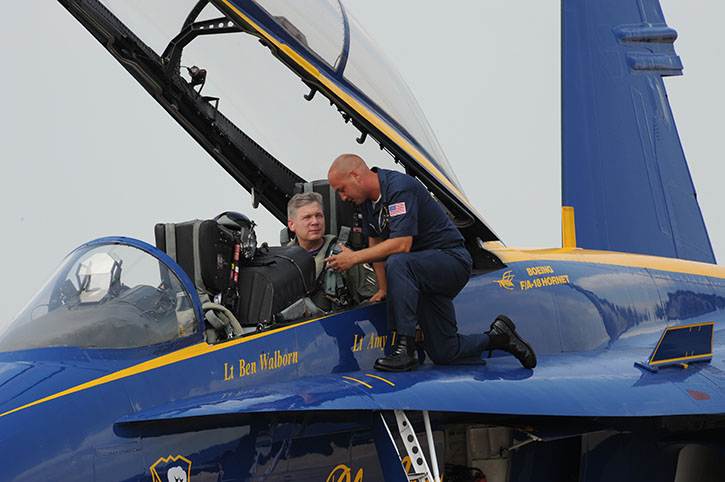
Lt. Gen. Robert Elder, now retired, photographed in May 2009. Photo provided.
After 33 years in the U.S. Air Force, retired Lieutenant General Robert Elder decided to take his career on a different path. He joined the Department of Electrical and Computer Engineering as a research professor. That was 11 years ago, and Elder is still on the same course.
He joined the Air Force in 1976 because he wanted to fly military aircraft, but he always planned to return to academia as a researcher after his commitment was over. He was well on track toward a doctorate in engineering when he signed up for military duty.
“I liked the opportunities the Air Force provided me, and they assigned me to positions that allowed me to conduct my degree work,” Elder says. “Things were going well, and six years became 12, and then 20, and soon it became time for retirement after 33 years.”
Because his intention all along was to return to academia and he earned the doctoral degree, he started considering offers from universities. Most of them were administrative positions, and although some were attractive, none were compatible with performing research.
When Elder approached retirement in 2009, ECE Professor Alex Levis, who led the System Architectures Lab, asked Elder to help with two different projects requiring an understanding of military operations, and Elder agreed.
Most of Elder’s research at Mason over the past decade has followed two tracks: modeling national security decision-making and command and control research.
The national security work has focused on assessments of risk to global stability and improved understanding of the competitive and cooperative interactions among friends and adversaries. This includes improved understanding of the factors influencing deterrence, assurance, and escalation control. “The experiments we conduct using influence and other models we construct provide senior decision-makers with insights they can apply to address real-world situations as they develop,” he says.
The command and control work has proven particularly helpful to the Department of Defense efforts to improve synchronization and de-confliction among service components, government agencies, and other countries.
Both the international decision-making and command and control research have been extremely interesting and personally rewarding for him.
“I wish I had performed this modeling work when I was still on active duty with the military because this level of understanding would have been invaluable,” Elder added.
People often ask him if he has any regrets about not using his engineering degree in the Air Force, but he explains that he used his degree almost every day of his military career.
“Engineering teaches you to take very complex problems, decompose them into pieces that can be analyzed and solved, and then put the different pieces back together in ways that provide insights and, very often, provide solutions,” he said. “I believe that this is the reason that many engineers become successful CEOs.”
